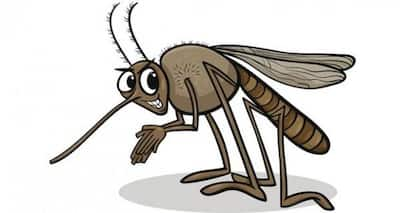Don’t Miss Out on the Latest Updates.
Subscribe to Our Newsletter Today!
Injecting Nix in female mosquitoes may help prevent dengue: Study

Dengue is one of the common diseases caused by Aedes aegypti mosquitoes during the monsoons. Did you know there is no vaccine for dengue and the only way to reduce infections is to improve hygiene levels so as to prevent mosquito-bites and prevent mosquitoes from breeding?
Only female mosquitoes bite because they need blood for developing eggs, and researchers believe that a higher ratio of males could reduce disease transmission. That, in fact, provides a foundation for developing mosquito control strategies by converting females into harmless males or selectively eliminating deadly females, they say. Researchers have now identified a gene that is responsible for sex determination in mosquitoes and that can transmit yellow fever, dengue and chikungunya viruses. 'The gene called 'Nix' provides us with exciting opportunities to harness mosquito sex in the fight against infectious diseases because maleness is the ultimate disease-refractory trait,' said Zhijian Jake Tu, professor of biochemistry at the Virginia Polytechnic Institute and State University (Virginia Tech).
The scientists injected 'Nix' into mosquito embryos and found more than two-thirds of the female mosquitoes developed male genitals and testes. When they removed 'Nix' using a genome-editing method, male mosquitoes developed female genitals. 'We are not there yet but the ultimate goal is to be able to establish transgenic lines that express Nix in genetic females to convert them to harmless males,' said Zach Adelman, associate professor of entomology and co-author. Aedes aegypti is among the small fraction of mosquito species that transmit pathogens to humans. 'Targeted reduction of Aedes aegypti populations in areas where they are non-native could have little environmental impact, and drastically improve human health,' noted Brantley Hall, co-first author on the paper.
Also Read
The study appeared in the journal Science Express.
You may also like to read:
- Dengue Here s why you should protect yourself from mosquito bites
- 10 practical tips to be mosquito-free and prevent dengue this season!
Source: IANS
Image source: Getty Images
For more articles on diseases & conditions, visit our diseases & conditions section. For daily free health tips, sign up for our newsletter.


